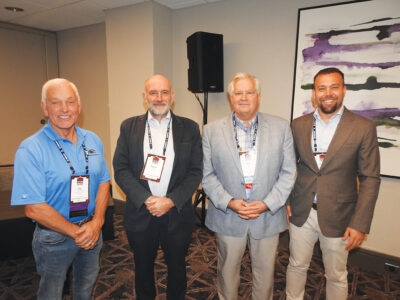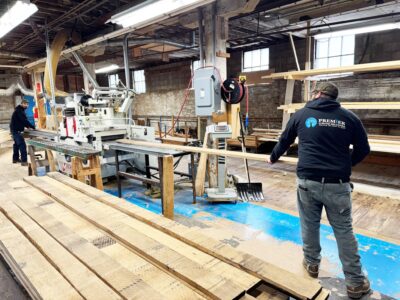Heading into spring, sawmill contacts noted they had lower log decks, while others had increased log inventories. Green lumber sales were reported as mixed with some saying they were slow, others noted they were fair, and some said it was good for them. Kiln-dried sales were reported as fair, while other areas noted they were slow. Sales were better for Red and White Oak, Walnut, Ash, and Yellow Birch. Sales are still difficult for Hard Maple, Soft Maple, Beech and Basswood.
As the housing sector continues its slow pace, cabinet manufacturers are not buying much materials as supplies are ample to meet their needs. Wholesalers report mixed sales levels depending on region contacted.
With warmer weather conditions upon us, Ash production was controlled as the most stain susceptible items were being processed ahead of this species. Business was noted as decent, while some international markets fared better than others. Prices are firm as a result.
Contacts noted that Basswood was readily available on the market, competition was intense, leading to sharp price decreases. Kiln-dried markets were weak, however. Some noted interest in the common grades for this species was lethargic.
Birch demand is stronger than for other Whitewoods with developing stock being absorbed on the markets. Kiln-dried inventories are more elevated relative to buyers’ needs, and prices are going down.
With the housing sector being impacted both in Canada and the U.S. by higher mortgage rates and prices, many secondary manufacturers are feeling this, with some having scaled back their operating hours, which reduced raw material needs. There is also competition from imported finished goods, MDF and non-wood products taking over the hardwood market share. Demand for Hard Maple, as a result, has gone down. It is harder to find sales for this species. Therefore competition is increased for sawmills to move this species. Kiln-dried stock of Hard Maple is not experiencing the same level of urgency to ship it, but more to help with cash flow and storage requirements. Prices for both kiln-dried and green are declining.
Depending on areas contacted, Soft Maple is selling better than Hard Maple. Some have an oversupply of green Soft Maple, and prices are lower.
International sales of kiln-dried Red Oak have cooled compared to several months ago, while domestic markets are steady. Inventories of most grades and thicknesses are not very high, but prices are firm. There is solid interest in green production as most sawmills are processing Whitewoods to avoid staining.
Contacts noted inventories are fairly low for most all grades and thicknesses of kiln-dried White Oak. Secondary manufacturers and wholesalers are working to raise their inventories, while suppliers are shipping the full green production.
It was noted pallet and lumber cant production was steady, with supplies outpacing buyers’ needs.
With the federal budget having been tabled March 28th, the Forest Products Association of Canada (FPAC) was pleased at the renewed support for Canada’s forest sector, its workers and communities, by outlining the leadership role forestry and forest products can play in growing Canada’s green economy. The Finance Minister pledged $368.4 million over three years toward Indigenous leadership in the sector, forestry research and development, low-carbon building construction, and support to bring more sustainably sourced Canadian forest products to the world.
FPAC said the Finance Minister was sending a clear message to Canadian forestry workers – that they were among the best in the world at what they did and were essential players in the lower carbon economy of tomorrow.
FPAC stated the budget also delivered on the promise of forest biomass from Canada’s sustainably managed forests.
In the face of worsening and more catastrophic fire patterns, the budget recognized that they needed to do more to build new markets for stranded wood fiber and wood waste, realize the climate benefits of biomass here at home, and help maximize carbon sinks in our forests.
The budget noted that forest biomass and biofuels provided a critical energy source and created much-needed economic growth for forestry businesses, workers, and families in northern and rural communities.
FPAC looked forward to working with the government to ensure its climate policies and regulations enable growth in the sector and that its suite of critical Investment Tax Credits will include Canadian forestry solutions. Under these conditions, noted FPAC, we can get more people working, accelerate our move to a lower carbon economy, and attract more private sector investment to Canada.
On another note about the budget, the new tax-free First Home Savings Account (FHSA), which was said to launch on April 1, 2023, is like a Tax Free Savings Account (TFSA) and allows first-time home buyers — or those who have not purchased a home in the previous four years — to make tax-deductible contributions and tax-free withdrawals to purchase a home. This may be good news for the hardwood industry as more buyers may be able to take advantage of this saving to buy a home, and which could result in new home owners making renovations such as hardwood floors, kitchen cabinets, and other wood components.









